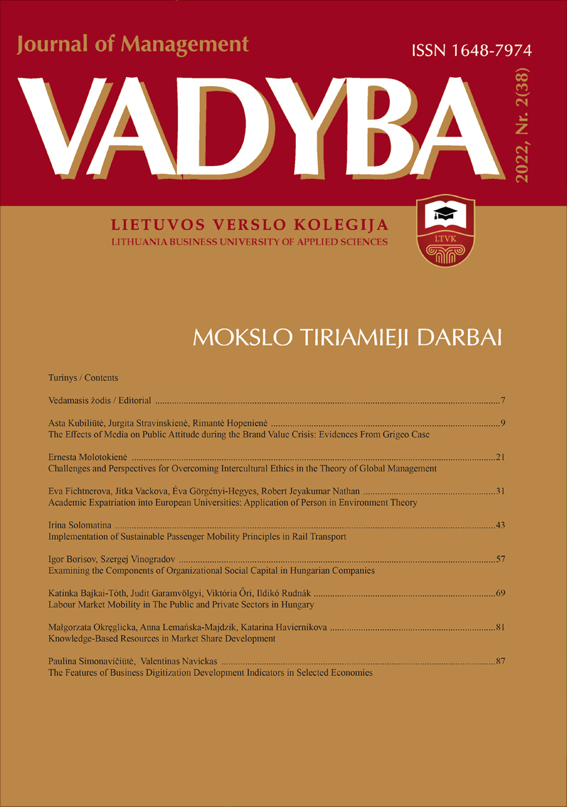THE INFLUENCE OF GENDER ON WORK ENGAGEMENT
THE INFLUENCE OF GENDER ON WORK ENGAGEMENT
Author(s): Petra Kováčová, Ondřej DrahotskýSubject(s): Gender Studies, Labor relations, Demography and human biology
Published by: Lietuvos verslo kolegija
Keywords: work engagement; gender; demographic factors; employees; retail;
Summary/Abstract: An increased interest in work engagement has emerged in recent years. Within this field, a number of crucial questions remain unanswered. Relatively little is known about the influence of gender on work engagement. Results obtained from different studies show inconsistent outcomes therefore it is still needed to examine them. In many organizations last different stereotypes about men and women. For instance, women are more sensitive and empathic, and men are more competitive and goal-oriented. There is still inconsistency among studies and no clear answer to the question “Does gender influence work engagement?”. Most studies have focused on work engagement in general, but few studies have investigated the impact of demographic factors such as gender, age, education, or years of employment. There were found various results in different sectors and countries, therefore it is important to pay attention also to these factors. Talking about gender, especially the role of women in different cultures may significantly influence work engagement which should be taken into consideration. This research explores the link between work engagement and gender in retail. The survey was distributed to 3467 participants, of whom 73,1 % (N=2535) participants completed a questionnaire and the data were used in this research. The data collected were quantitative. The questionnaire consisted of 20 questions that respondents answered on a five-point Likert scale (1 strongly disagree – 5 strongly agree). The questions in the questionnaire are based on a literature review and well-known surveys: Utrecht Work Engagement Scale (UWES-9) and Gallup Q12 and other questions that focus on engagement in the team, the role of the manager, work itself and the last one focused on the company vision. The result yielded no statistically significant relationships between gender and work engagement. Our findings can be compared to the results of earlier studies that there is no statistically significant difference in work engagement between men and women. On the other hand, some studies argue that there is a difference in work engagement based on gender, either little or in some cases significant. This research has several implications for theory and practice. At the theoretical level, it complements research about demographic factors, in this case, gender, and its influence on work engagement in retail. HRD needs to create a strategy to increase their employees' engagement, but in retail not necessary based on gender differences. This research required addressing several limitations. Firstly, the findings are not generalizable beyond retail. The research was conducted only in one country. Future research will have to confirm whether there are any differences between other sectors and other countries. Among side findings, this research revealed the highest and lowest-rated questions, which need to be further examined in future research.
Journal: VADYBA
- Issue Year: 38/2022
- Issue No: 2
- Page Range: 95-100
- Page Count: 6
- Language: English

